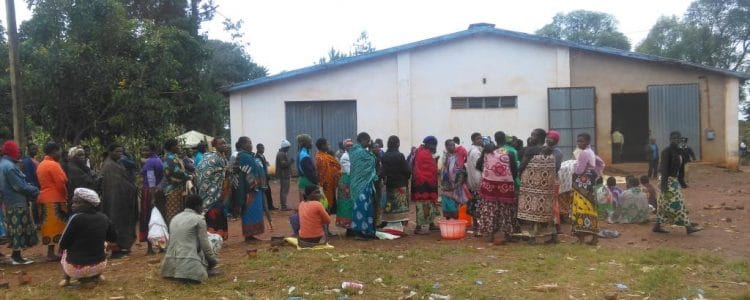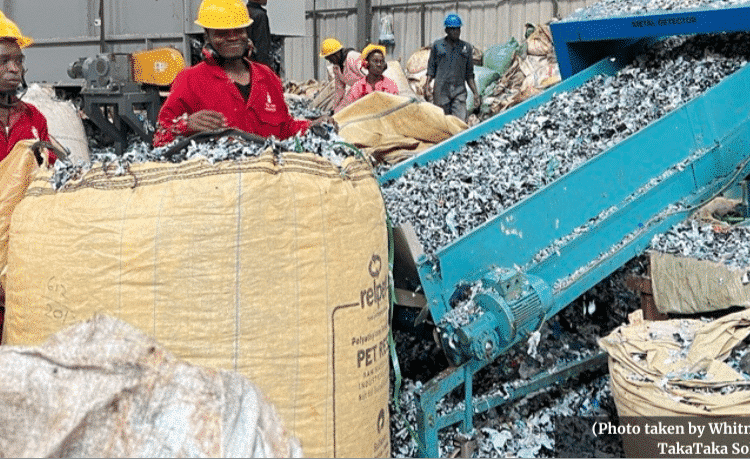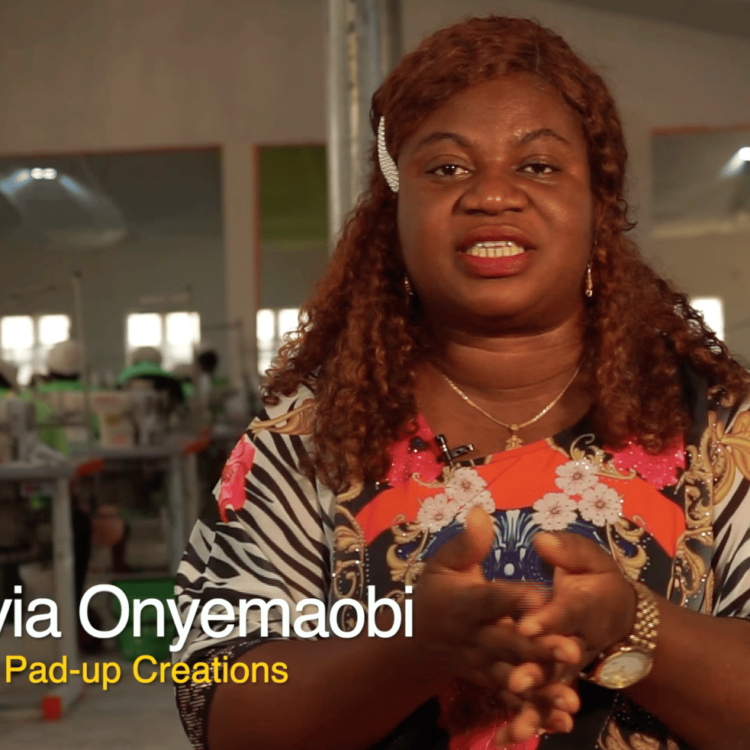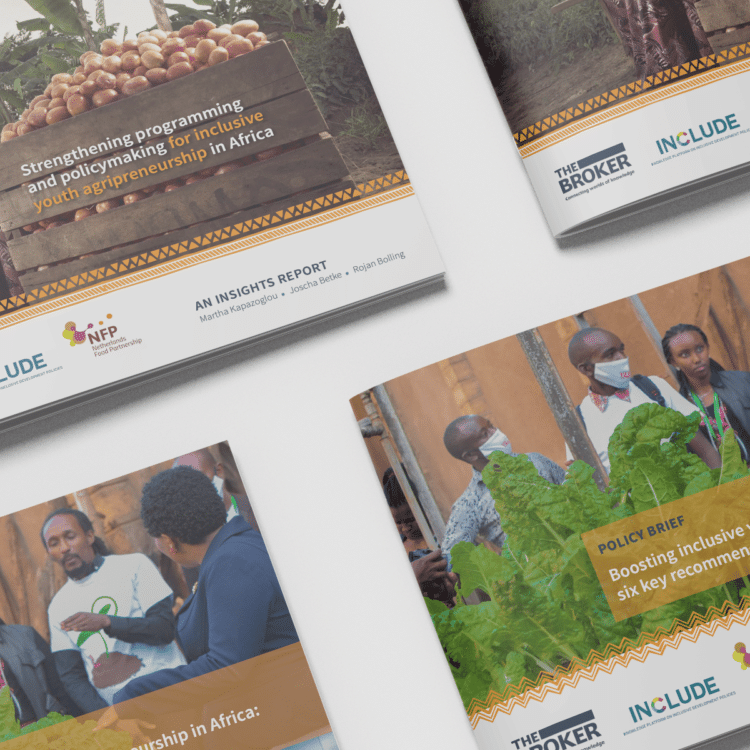
Saskia Vossenberg, PhD researcher at the Centre for Frugal Innovation in Africa (CFIA), is currently travelling in Malawi to collect stories of female entrepreneurs who use technological innovations to grow their businesses. Why and how do these women use technological innovation? How do they benefit from it? How does it affect their lives and businesses and contribute to inclusive development? She is accompanied by research assistant Tanja Hendriks and writes a blog for INCLUDE to share stories from the field.
21 April 2016
Today, I am meeting Stella.1 After a long drive on dusty roads I am sitting in her living room. Her tiny house is made of bricks with a cement floor. She must be doing better than her neighbours who have mud huts. She is sitting in front of me, with her two daughters and her baby boy, Hope. Looking around, I see a solar battery, television, fridge and mobile phone. We talk about her businesses and plans to expand. She is a maize farmer, but also grows tobacco and groundnuts. In addition, she does some ‘malonda’ (small business) like selling fritters. When she harvests, she keeps what she needs to feed her family and with the surplus of her produce she “makes a business” by offering it to the market.

Tobacco being weighed at the local market.
ACE innovation that empowers farmers
Since 2013, Stella has used the services of the Agricultural Commodity Exchange for Africa (ACE). ACE is an innovation that links farmers to markets and supports farmers to make better decisions about when to buy and sell commodities. Software developed by ACE shares real time market information via laptops, mobile phones and the radio to break down the barriers that prevent farmers from adopting structured trade. ACE has 43 warehouses throughout the country where farmers can store their commodities and access finance.
Stella says that ACE informs her of the market price by text message. “Before, I would only offer my commodities to the vendors here in my village, immediately after harvesting. But these ones kuba (steal). They tamper with the weighing scale. So, although I knew my maize volume was 1,000 kg, they paid me for 950 kg.”
Now Stella places her commodities at the ACE warehouse and receives a receipt together with a loan for 70% of the value of the maize. The loan solves her immediate need for cash and allows her to wait for a better price. ACE stocks commodities from individuals and groups of farmers and uses its website and network to find buyers for large quantities. When a buyer is found, ACE informs the farmers about the price by radio, telephone and SMS. If a farmer decides to sell, he/she receives another payment for the total value, less the 70% loan, interest and storage fees.
“In 2013”, Stella says, “I managed to sell my maize for a good price, which helped me cover all my household expenses, rent some additional land and buy fertilizer.” But 2014 was a bad year; being an election year, political parties handed out free maize to people, causing market prices to drop. Stella made a loss and was unable to meet her household needs or buy enough fertilizer that year.

My translator Lifa Kainja in fields of groundnut and maize.
“Men are pulling us down”
Stella is married, but she works the farm by herself, as is often the case in Malawi. When possible, she hires piece workers to support her work. Stella’s farming is the main source of income for the family, making her the breadwinner. Her husband is ‘just selling and buying’, she says. “He is not a very good business man. I am better at it, because I plan. Sometimes he feels down, so I comfort him and give him advice on how to improve, but he rarely listens.”
To keep his business going, he often requests Stella to give him the cash she earns. Does he also support her? “No, never”, Stella says. “Not in the house, nor in my businesses.” When I ask her how that makes her feel, she says: “Heartbroken”. Then she tells her daughters to leave the room and says “mwamuna wanga amandiponderetsa” (my husband is pulling me down). “In 2015, I used the loan I received from ACE to buy fertilizer. My husband kept on asking me to give him the cash, but I couldn’t. I have to reinvest the money otherwise it gets eaten. One morning I found that he had stolen three bags of the fertilizer stored in the house and sold it. When I confronted him, he got so angry at me, because a woman is not supposed to disrespect her husband”. So he beat her up.
Stella suspects that he used the cash to keep his mistresses happy, buy new clothes and drink beer. As a result of his theft, Stella was only able to feed her daughters nsima (maize porridge) and was unable to buy veggies, sugar, meat or fish. She also failed to buy enough fertilizer that year for the amount of land she has access to.

One of the ACE warehouses and its manager.
Improved profit does not equal improved well-being
While using ACE services did indeed support Stella to access markets, make better decisions about when to sell and realize more profit, it did not improve her well-being or enable her to grow her farm in the way she had envisioned. Her husband’s decision to reverse her smart business decision, only benefitted his own needs and posed an additional entrepreneurial risk for Stella.
I am puzzled how to ‘classify’ Stella as an entrepreneur. She is educated, keeps books, has access to land, plans ahead, wants to reinvest, hires labour and clearly knows how to run a business. But without a supportive husband she is being ‘pulled down’ into this grey area between being a subsistence farmer and a small scale farmer with potential for growth.
Stella’s story is not an unusual. Most of the female farmers trading with ACE who I have talked to said that there is no chikondi (love) in marriage and that it comes with a lot of obligations and interferes with their businesses. Men’s jealous behaviour, promiscuity, lack of support of the farm or business, and dominance in decision-making leaves them with limited mobility to find markets, time to invest in the business or control over the cash generate. I keep wondering what good chikondi could do for business here in Malawi. Yes, I did meet a few couples, like Mary and Blessings, who share the farm work and decide together how the money is spent, but they are the exception.
Increase impact of innovation initiatives
ACE has registered about 50,000 farmers on the market information system, and innovative initiatives like ACE can revolutionize agricultural markets and empower farmers. But, as Stella’s story demonstrates, this does not work when there is a disconnect between the innovation initiative and the daily reality of female farmers. To increase impact, it must be understood that farmers’ decisions do not solely depend on having access to market information, but are mediated by gendered risks and vulnerabilities within the household. This affects women more because of their culturally-defined role as subordinate to men. However, the position of women within the household and community need not be seen as fixed; instead, it should be ingested into the logic of the innovation and innovative ways found to address such dynamics.
For ACE, this may involve looking at how to identify and address risky gender dynamics in its programme and capacity building activities.2 Rather than designing additional activities targeted at female farmers, there is a need to sensitize men and engage the husbands of participating female farmers in all capacity building activities. ACE staff can also benefit from training on how to sensitize farmer couples on gender roles and decision-making patterns, and how to build more trust between couples.

A carrot vendor in Mzuzu.
Planning in a time of drought
Stella shares her business plan for the coming years. She wants to rent more land, produce more, and build a house on it so she can rent it out and, after a while, live in it herself. She is strategizing for a more independent life, which eventually involves divorcing her husband. But, because her profit margins are so small and ‘eaten’, she can only move slowly.
She is confident that she will be able to reap a good harvest of groundnuts this year. Through ACE, she expects to find a good price. She is worried about the maize, though. “The rains came late, so we planted late. Then the rains stopped and the maize dried. Then the rains came again, but they washed most of the maize away.”
That same evening I read in the newspaper that President Mutharika has declared an emergency situation, because drought and irregular rainfall caused by El Nino has forced food production down by 24%. This means that the number of people in need of food relief (currently three million) will shoot up drastically in the coming years. It also means that maize prices may skyrocket, helping Stella to make a good profit.
Does your husband know that you are planning all of this, I ask? “No”, she says, “As long as I keep bringing him the cash, he doesn’t care and doesn’t ask”.




